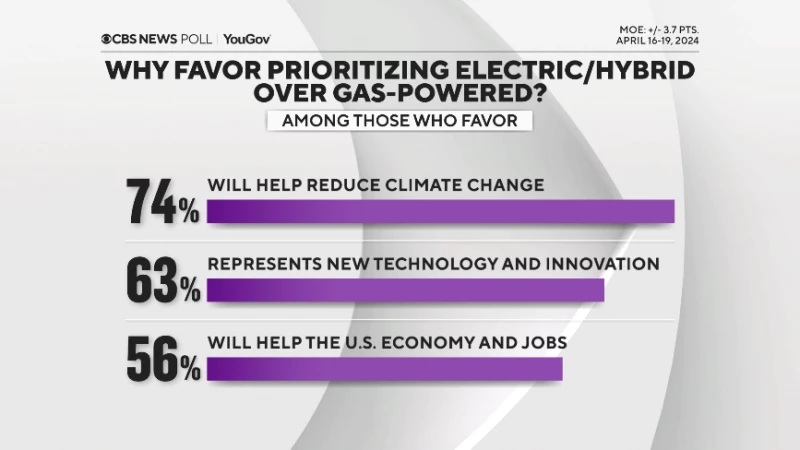Throughout the years, the conversation around climate change has often revolved around a perceived economic tradeoff: Can we afford to address it without sacrificing jobs and money in a society so reliant on fossil fuels?
This perspective remains prevalent today, especially on an individual level.
A significant number of individuals are more inclined to oppose initiatives aimed at combating climate change if they believe it will negatively impact their financial well-being.
In fact, a majority of those who anticipate financial drawbacks from efforts to address climate change are fundamentally against the U.S. government taking action in this regard, despite widespread support for such measures across the country.
Furthermore, these individuals extrapolate their concerns to suggest that a shift towards renewable energy, in particular, would harm the U.S. economy and job market.
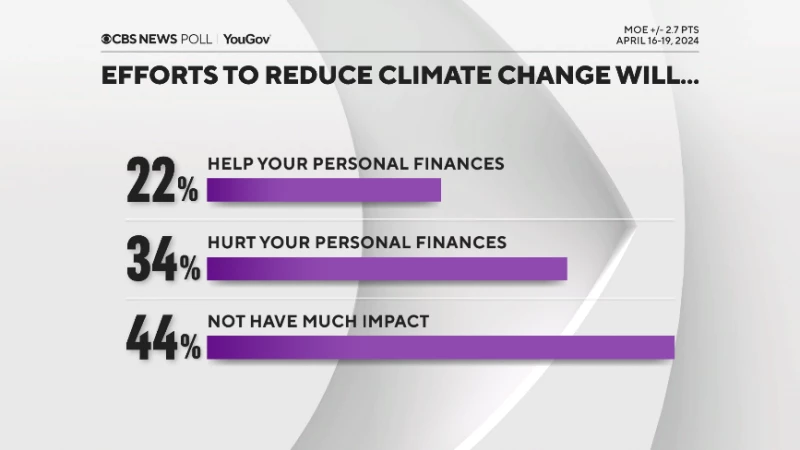
When it comes to assessing personal economic impact, one often overlooked factor is the damage caused by weather events.
A significant portion of the population reports that their communities have been affected by hurricanes, floods, fires, and heat waves.
Interestingly, those who have experienced such damage are more inclined to support initiatives aimed at combating climate change. They are also nearly twice as likely to believe that these efforts could benefit them financially.
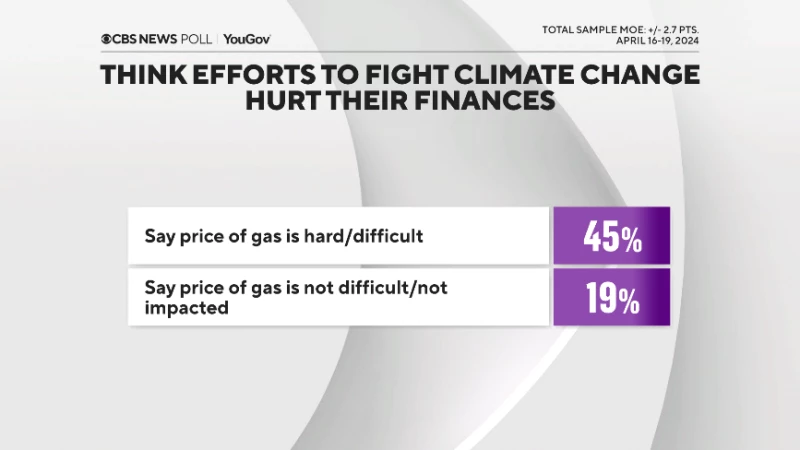
However, there remains a sizable group of individuals who do not subscribe to the idea of a tradeoff, particularly concerning energy production. Nearly 80% of people believe that it is feasible to increase energy production while also safeguarding the environment.
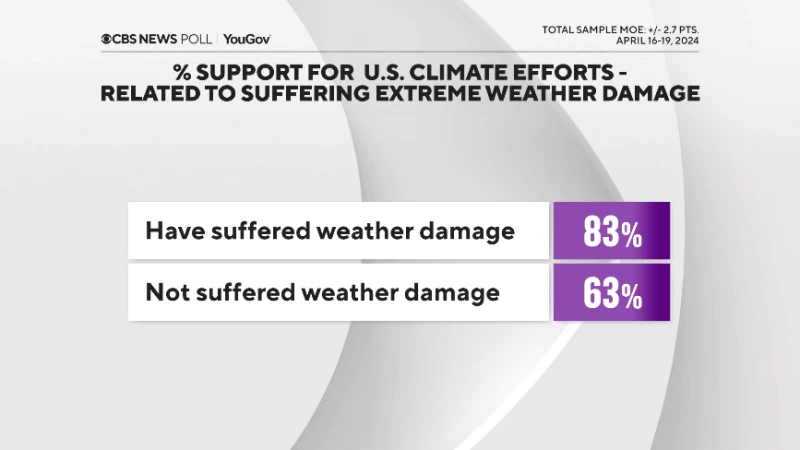
Zooming out to look at the bigger picture, there is a lack of consensus regarding the economic implications of climate change mitigation efforts.
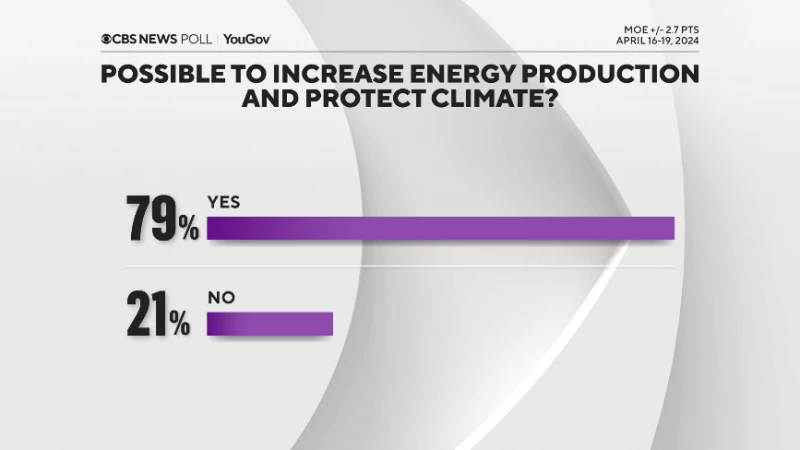
Exploring the Biden Climate Agenda
Surprisingly, half of Americans have limited knowledge or have heard nothing about the actions taken by the Biden administration in response to climate change. Only 14% claim to be well-informed on the subject.
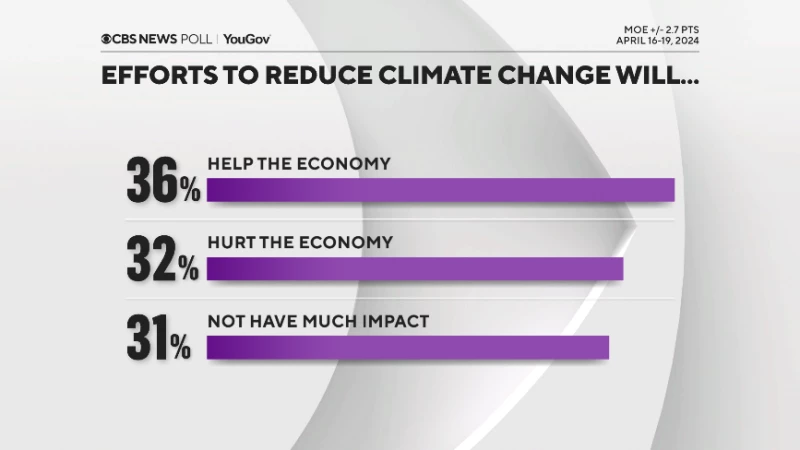
Moreover, a majority of individuals are uncertain about whether their state has received federal funding for climate change-related projects.
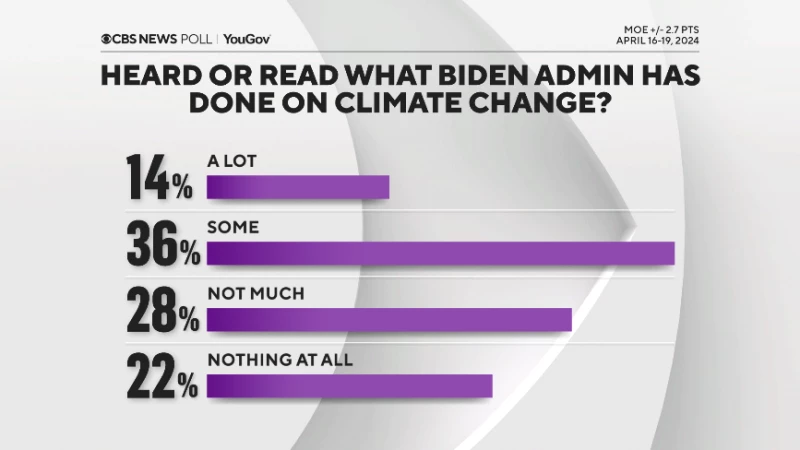
When individuals are specifically questioned about certain policy initiatives of the current administration, a significant portion of them express support rather than opposition, at least in theory. However, a considerable number remain unaware of these initiatives.
Nevertheless, the overall lack of awareness regarding the Biden administration's strategies for addressing climate change—despite a majority expressing support for U.S. efforts to combat it in principle—suggests a disconnect between the specific policies proposed by the president and the broader goal.
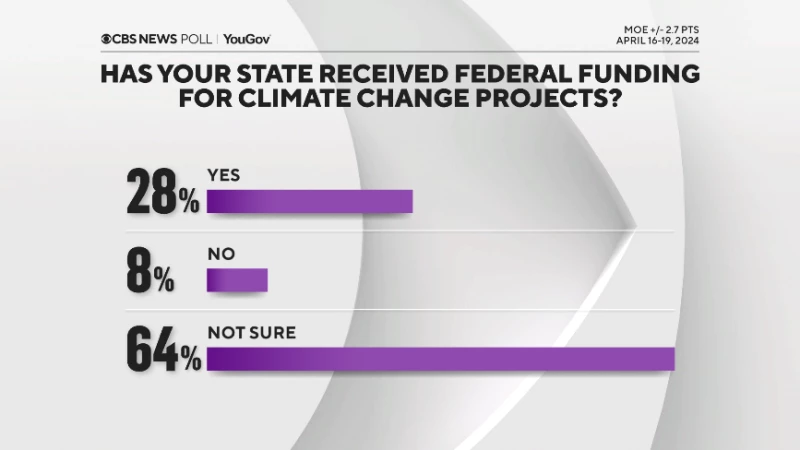
Notably, the Biden administration, along with many Democrats, argues that investing in renewable energy and environmental initiatives also makes financial sense.
For example, consider the initiative to transition to electric vehicles. A slight majority is in favor of this transition.
However, some individuals who oppose such policies cite economic concerns as a primary reason, fearing negative impacts on the economy and job market. Another common reason for opposition is a general aversion to what they perceive as imposing a specific choice.
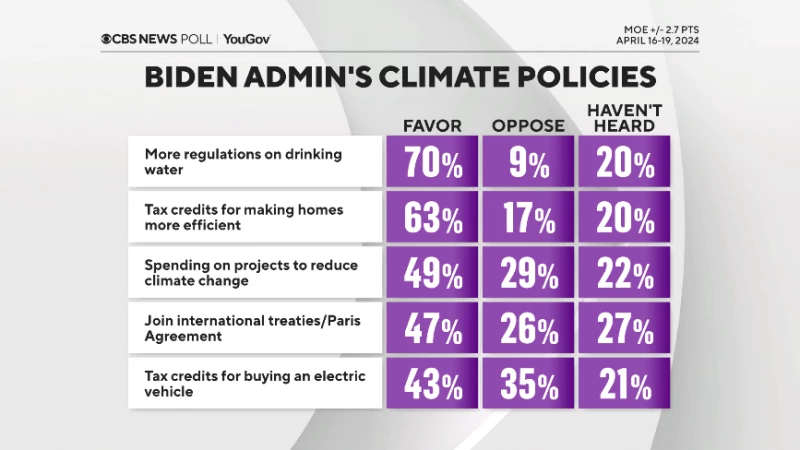
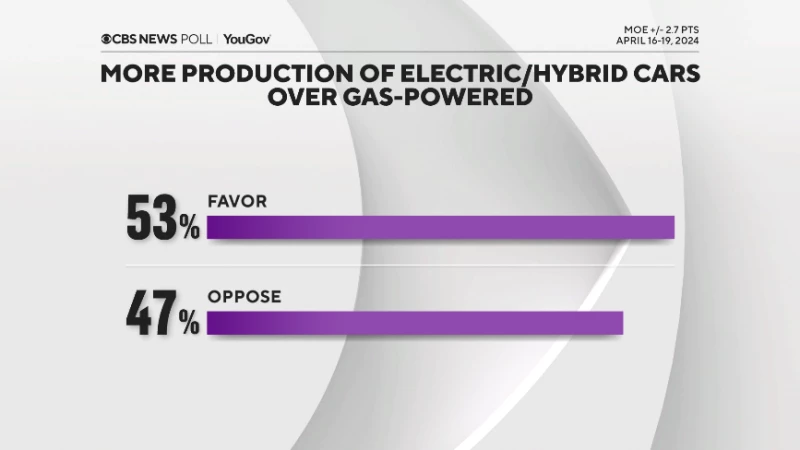
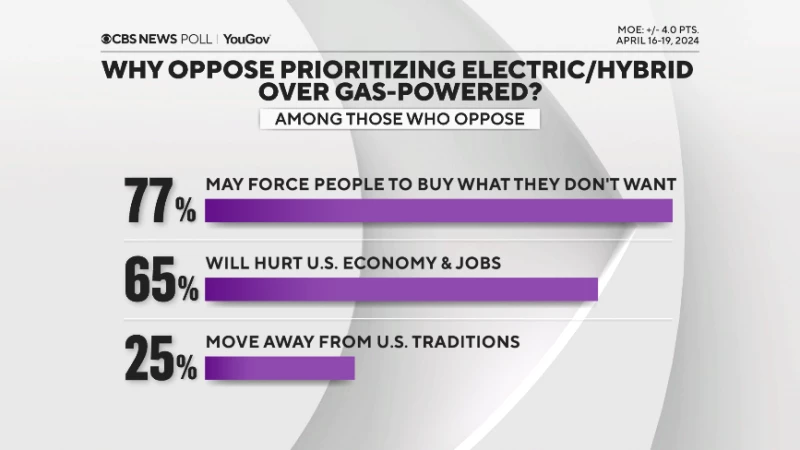
According to a recent survey conducted by CBS News/YouGov, 2,230 U.S. adult residents were interviewed between April 16-19, 2024. The sample was weighted based on gender, age, race, education, and past vote demographics. The margin of error for the survey results is ±2.7 points.
